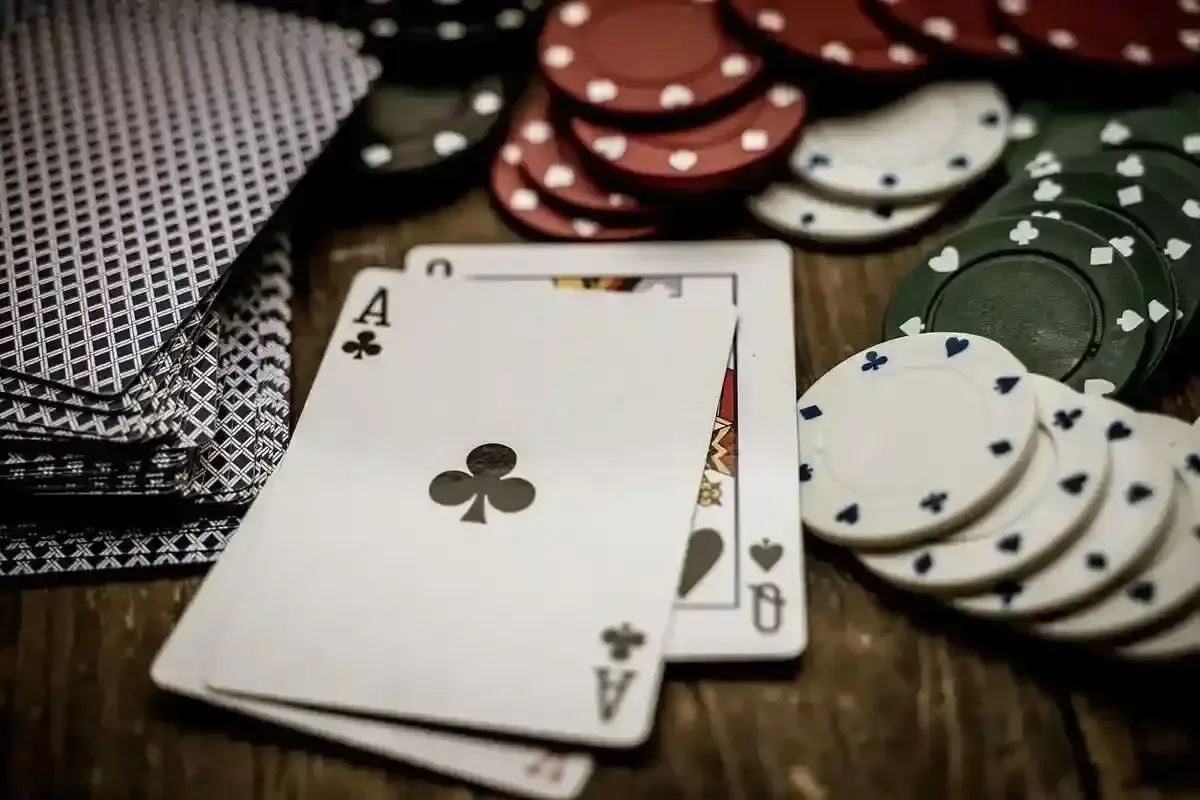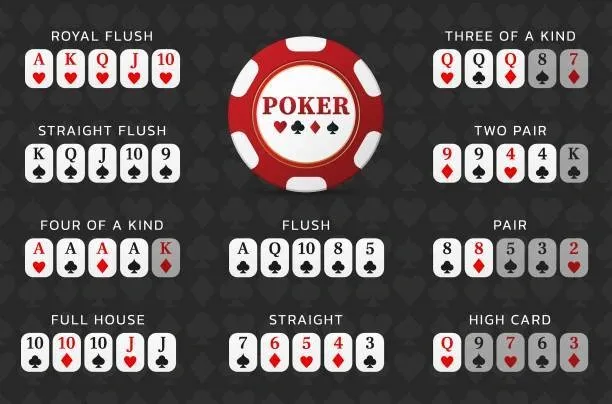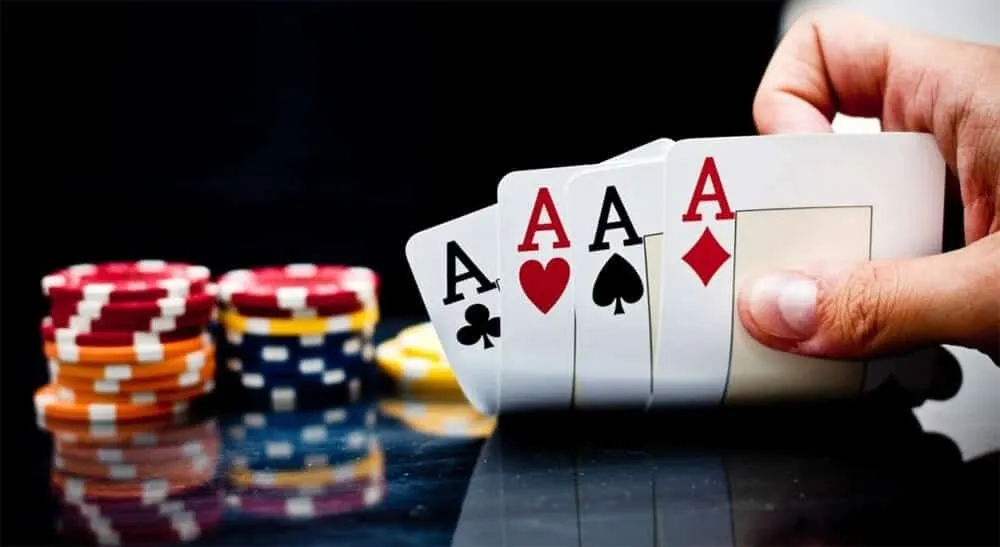Master the Game with These Essential Poker Slang Phrases

No one sits down at their first poker game knowing all the slang. If you’re just getting into it or trying to sharpen your skills, the table talk can feel like another language. Miss a key thing, like poker terms call, and you might miss a beat — or worse, a winning move.
In poker, confidence is everything. But there’s a line between bluffing your hand and pretending to understand the game. Misreading a phrase or not knowing what someone means can cost you chips fast.
That’s why this guide exists. It breaks down the must-know poker terminology, common slang, and the everyday chatter you’ll hear whether you’re playing Texas Hold’em or something else. Getting a handle on the lingo won’t just help you blend in — it’ll help you play smarter.
Essential Poker Terms Every Player Should Know

Knowing the language of poker slang gives you a real edge. These basic terms come up constantly during play — they’re the building blocks of every conversation at the table. Once you’ve got them down, the rest of the game starts to click.
Action
The moment in a hand when a player can choose to check, bet, raise, or fold. Also used to describe a game full of frequent betting.
Ante
An initial amount each player contributes to the pot before the cards are distributed. It helps build the pot early.
Pot
All the chips that have been bet during a hand — the winner of the round takes it.
Blind
Before any cards are dealt, the two players to the dealer’s left must place mandatory bets known as the blinds.
Small Blind
The first forced bet, made by the player immediately left of the dealer button.
Big Blind
A bet equal to twice the small blind, placed by the next player to the left of the small blind.
Tournament
A structured event with multiple players competing using tournament chips. Everyone starts with the same amount.
Bubble
The final player eliminated before prize payouts begin. Just missed the money.
Key Betting Terms for Beginners Explained
Getting familiar with core poker terms for beginners makes it easier to follow the flow of a poker hand. These phrases show up in every round and shape the decisions players make.
Call
To remain in the hand, a player must match the current highest bet on the table. It’s a passive move, often used when unsure about raising. That's what does call mean in poker.
Check
What does check mean in poker? Choosing not to bet while still staying in the hand. This option is only available if no one else has placed a bet during the current round.
Raise
Raising the stakes by betting more than the player before you. This move forces others to match or fold.
Fold
Dropping out of the hand by placing your cards face down. This means you’re giving up your right to compete for the pot.
Re-raise
Raising after someone else has already raised. A bold strategy that can show strength or apply pressure.
Check-raise
Checking at first, then raising after another player bets. This move usually signals either real strength or a well-timed bluff.
All-in
Putting all your remaining chips into the pot. It’s a do-or-die moment in the game.
Bluff
Betting or raising with a weak hand to trick opponents into folding. When done well, it’s a powerful tool.
Fundamental Dealing Terms in Poker Games
Let’s be real — poker’s way more fun when you actually get how the cards are handed out. This basic dealing poker term pops up in every hand — from shuffling to showing the cards. If you’re new to poker, learning them helps you see what’s going on and know when it’s your move.
Dealer Button
A marker used to indicate the dealer position, rotating clockwise with every new hand. It marks the position of the dealer and decides the order of play.
Shuffle
Mixing the cards before they’re dealt. This step ensures fairness and random outcomes in every hand.
Cut
After shuffling, the deck is split into two parts and rejoined. Usually done by the player to the dealer’s right.
Deal
Distributing cards to each player. The dealer gives cards one by one, starting with the small blind.
Burn Card
A card removed from the top of the deck before community cards are placed on the table. It prevents cheating or card tracking.
Flop
The first three community cards dealt face up. These are shared by all players in the hand.
Turn
The fourth community card placed face up. It adds more options for building strong hands.
River
The fifth and final community card. It often decides the outcome of the hand.
Understanding Poker Hand Terminology Made Simple

Playing decent poker means grasping how card combinations stack up against each other. These standard poker words explain what different hands look like. Learning these basics helps you track game flow and figure out who's winning.
High Card
If no better combination is made, the hand with the highest single card wins. It’s the weakest hand.
Pair
Two matching cards (like twin Kings). This beats high card but loses to everything else.
Two Pair
Two different pairs together, maybe twin 9s plus twin 4s. Better pair usually wins when players compare.
Three of a Kind
Three matching ranks. Players sometimes call this "trips" or "a set" depending on how you made it.
Straight
Five consecutive ranks (think 6-7-8-9-10) but mixed suits.
Flush
Five cards sharing one suit, though not consecutive.
Full House
Three of one rank and two of another. For example: three Kings and two 4s.
Four of a Kind
Four cards of the same value. Strong and rare.
Straight Flush
Five consecutive cards of the same suit — one of the highest-ranking hands in poker.
Royal Flush
The highest-ranking hand in poker: 10 through Ace of the same suit. It’s unbeatable.
Common Player Behavior Terms in Poker Decoded

Card games involve much more than just the cards themselves — watching how people behave reveals crucial information. These terms used in poker categorize various playing approaches and tendencies. Understanding these patterns helps you identify opponent strategies, predict actions, and modify your own gameplay accordingly.
Tight
A player who doesn’t enter many hands. They usually wait for strong cards and avoid taking big risks.
Loose
Participants who engage with numerous starting hands, including weaker combinations. They frequently remain active longer than most would expect.
Aggressive
This player bets and raises often. They try to take control of the table and push others to fold.
Passive
A cautious style. These players mostly check or call and rarely raise unless they’re holding something strong.
Maniac
A wild card at the table — this player bets big, raises nonstop, and bluffs like there’s no tomorrow. Hard to read, but just as likely to crash as to cash in.
Calling Station
A player who calls too often, even with weak hands. They rarely fold or raise, making them easy to read.
Shark
An experienced player with deep knowledge of the game. They read the table with precision and make every move with calculated purpose.
Fish
A beginner or weak player. Easy to spot and often targeted by stronger players at the table.
Tilt
A state of emotional frustration. Players on tilt often make bad choices and try to win back their losses recklessly.
Mastering poker table conversation represents a smart starting point for staying competitive. The poker meaning slang continues evolving constantly — participants regularly invent fresh expressions — which actually adds to the game's appeal.
Nobody expects you to absorb everything immediately. Begin with fundamental concepts, develop comfort with the dialogue, then expand your knowledge gradually. Grasping what others communicate keeps you alert and self-assured during gameplay.
FAQ
Understanding poker slang helps players communicate more effectively at the table, read opponents’ behavior, and follow live or online discussions. It also improves strategic decision-making because many slang terms describe specific situations, hand types, or betting dynamics.

Sergey Ilyin
An experienced specialist in the field of betting and gambling. He analyzes market trends, player behavior, and the dynamics of online gaming platform development. An expert in the intricacies of sports betting and knowledgeable about the regulatory framework of the gambling industry.
